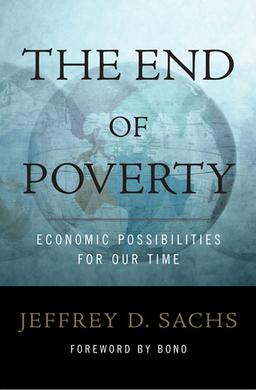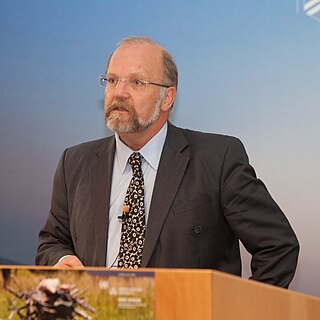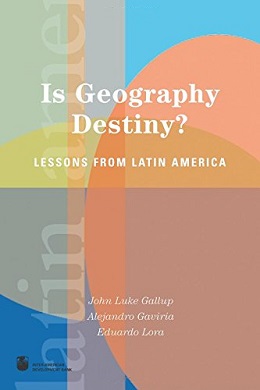Related Research Articles

Environmental determinism is the study of how the physical environment predisposes societies and states towards particular development trajectories. Jared Diamond, Jeffrey Herbst, Ian Morris, and other social scientists sparked a revival of the theory during the late twentieth and early twenty-first centuries. This "neo-environmental determinism" school of thought examines how geographic and ecological forces influence state-building, economic development, and institutions. Many scholars underscore that this original approach was used to encourage colonialism and eurocentrism, and devalued human agency in non-Western societies, whereas modern figures like Diamond have instead used the approach as an explanation that rejects racism.
Development economics is a branch of economics which deals with economic aspects of the development process in low- and middle- income countries. Its focus is not only on methods of promoting economic development, economic growth and structural change but also on improving the potential for the mass of the population, for example, through health, education and workplace conditions, whether through public or private channels.

In general, a rural area or a countryside is a geographic area that is located outside towns and cities. Typical rural areas have a low population density and small settlements. Agricultural areas and areas with forestry typically are described as rural. Different countries have varying definitions of rural for statistical and administrative purposes.

The 1997 Asian financial crisis was a period of financial crisis that gripped much of East and Southeast Asia during the late 1990s. The crisis began in Thailand in July 1997 before spreading to several other countries with a ripple effect, raising fears of a worldwide economic meltdown due to financial contagion. However, the recovery in 1998–1999 was rapid, and worries of a meltdown quickly subsided.

Jeffrey David Sachs is an American economist, academic, public policy analyst, and former director of The Earth Institute at Columbia University, where he holds the title of University Professor. He is known for his work on sustainable development, economic development, and the fight to end poverty.

Underdevelopment, in the context of international development, reflects a broad condition or phenomena defined and critiqued by theorists in fields such as economics, development studies, and postcolonial studies. Used primarily to distinguish states along benchmarks concerning human development—such as macro-economic growth, health, education, and standards of living—an "underdeveloped" state is framed as the antithesis of a "developed", modern, or industrialized state. Popularized, dominant images of underdeveloped states include those that have less stable economies, less democratic political regimes, greater poverty, malnutrition, and poorer public health and education systems.

Development geography is a branch of geography which refers to the standard of living and its quality of life of its human inhabitants. In this context, development is a process of change that affects peoples' lives. It may involve an improvement in the quality of life as perceived by the people undergoing change. However, development is not always a positive process. Gunder Frank commented on the global economic forces that lead to the development of underdevelopment. This is covered in his dependency theory.
Đổi Mới is the name given to the economic reforms initiated in Vietnam in 1986 with the goal of creating a "socialist-oriented market economy". The term đổi mới itself is a general term with wide use in the Vietnamese language meaning "innovate" or "renovate". However, the Đổi Mới Policy refers specifically to these reforms that sought to transition Vietnam from a command economy to a socialist-oriented market economy.

The End of Poverty: Economic Possibilities for Our Time (ISBN 1-59420-045-9) is a 2005 book by American economist Jeffrey Sachs. It was a New York Times bestseller.

Geography and wealth have long been perceived as correlated attributes of nations. Scholars such as Jeffrey D. Sachs argue that geography has a key role in the development of a nation's economic growth. For instance, nations that reside along coastal regions, or those who have access to a nearby water source, are more plentiful and able to trade with neighboring nations. In addition, countries that have a tropical climate face a significant amount of difficulties such as disease, intense weather patterns, and lower agricultural productivity. This thesis is supported by the fact that the volumes of UV radiation have a negative impact on economic activity. There are a number of studies confirming that spatial development in countries with higher levels of economic development differs from countries with lower levels of development. The correlation between geography and a nation's wealth can be observed by examining a country's GDP per capita, which takes into account a nation's economic output and population.
GDP Density is a measure of economic activity by area. It is expressed as GDP per square kilometer and can be calculated by multiplying GDP per capita of an area by the population density of that area. Amongst other uses it demonstrates the effects of geography on economy.
Demographic economics or population economics is the application of economic analysis to demography, the study of human populations, including size, growth, density, distribution, and vital statistics.

Finn Tarp is a Danish professor of development economics at the University of Copenhagen and former director of UNU-WIDER (2009-2018), Helsinki, Finland.
Dwight Heald Perkins II is an American academic, economist, Sinologist and professor at Harvard University. He is the son of Lawrence Bradford Perkins, architect, and Margery Blair Perkins and the grandson of Dwight Heald Perkins, the architect. He married Julie Rate Perkins in 1957 and they have three adult children.

Is Geography Destiny? Lessons from Latin America is a book written by John Luke Gallup, Alejandro Gaviria, Eduardo Lora and published by the Inter-American Development Bank (IDB), which documents an advanced step of the rediscovery of geography by economists initiated by Paul Krugman in the early 1990s, however in another, more deterministic direction.

Until the 1920s, most of the Vietnamese population lived under the poverty line. This was due to a number of reasons, which was a result from years as a French colony, the Japanese occupation of Vietnam, the Vietnam-American War, and further conflicts within Mainland Southeast Asia. Continuous conflicts from 1887 to 1991, more than 100 years of instability had left Vietnam a war-torn country that was prone severe floods from typhoons, rising sea levels, as well as the so-called "flood season" from seasonal monsoons, as well as the effects of climate change.

A secondary city is an urban hub that fills specific regional and local needs related to governance, economics, finance, education, trade, transportation. A secondary city is defined by population, area, function, and economic status, but also by their relationship to neighboring and distant cities and their socio-economic status. A secondary city may emerge from a cluster of smaller cities in a metropolitan region or may be the capital city of a province, state, or second-tier administrative unit within a country. Secondary cities are the fastest growing urban areas in lower and middle income countries, experiencing unplanned growth and development. By 2030, there will be twice as many medium size cities as there were in 1990, outnumbering the total number of megacities. According to the World Bank, secondary cities make up almost 40% of the world cities population. Many secondary cities in the Global South are expected to undergo massive expansions in the next few decades comparable to city growth in Europe and North America over the past two centuries. These cities are unique environments that generally have limited data and information on infrastructure, land tenure, and planning.
Sanjiv M. Ravi Kanbur, is T.H. Lee Professor of World Affairs, International Professor of Applied Economics, and Professor of Economics at Cornell University. He worked for the World Bank for almost two decades and was the director of the World Development Report.
Steven Radelet is an American economist working within the field of International Development. He holds the Donald F. McHenry Chair in Global Human Development and is also the Director of the Global Human Development Program (GHDP) at Georgetown University, a program of the Edmund A. Walsh School of Foreign Service.
References
- ↑ "John Luke Gallup". Portland State University. Retrieved 9 October 2011.